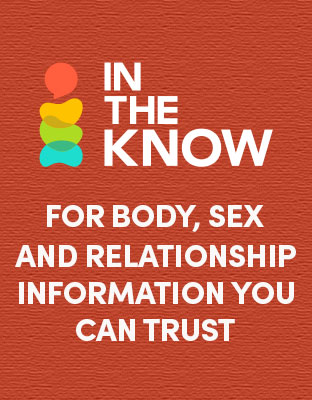Period Problems
Are there any common menstrual problems I should know about?
There are a variety of problems that can occur with the menstrual cycle. Some of the common problems are covered briefly below but it is best to discuss any specific period problems with your local doctor or Family Planning clinic.
Amenorrhoea
- this is when a woman has no periods.
- amenorrhoea can be primary which means that your periods don’t start at the usual age or secondary which is when your periods have started but then stop.
- there are various reasons for amenorrhoea such as pregnancy, a genetic or physical abnormality, a hormonal disturbance or early menopause.
- if you haven’t had your period by the time you turn 14, it is important to see a doctor to make sure there are no medical problems.
- if you don’t get your periods for more than 6 months or you only get three or four periods in a year, you should talk to your doctor.
- very irregular periods may be a sign of polycystic ovary syndrome (PCOS). See our factsheet and visit your doctor if you think you might have PCOS.
Dysmenorrhoea
- this is the medical name for painful periods - most women have some pain with their periods.
- as long as it is not particularly severe or interfering with your life and it settles after a couple of days, it is unlikely to be anything to be very concerned about.
- for mild pain you can take painkillers and anti-cramping medications such as mefenamic acid (Ponstan®), or naproxen sodium (Naprogesic®).
- These are more effective the sooner you take them.
- Paracetamol is used by some women, but is much less effective at reducing cramping.
- some women also find herbal remedies, gentle exercise or a hot pack applied to the lower abdomen useful.
- more severe period pain will often settle if a woman starts to use a hormonal method of contraception such as the combined hormonal contraceptive pill (the Pill) or the hormonal IUD.
Endometriosis
- if you have severe period pain you might have endometriosis – this is when the lining of the uterus grows outside the uterus
- it can cause pain with periods as well as pain when having sex or opening your bowels; it can be associated with spotting before your periods and with infertility
- if you have very severe period pain, it is important to talk to your doctor
- the pain associated with endometriosis can often be reduced with medications including the Pill and the hormonal IUD
- some women will need referral to a gynaecologist for further investigations and treatment
Heavy menstrual bleeding
- heavy bleeding during your periods can be caused by many things including a hormonal imbalance, problems with blood clotting or uterine growths such as polyps and fibroids.
- if your period is so heavy it interferes with your normal everyday life you should see your doctor for advice.
- you may need an ultrasound of your uterus and ovaries.
- the treatment will depend on the cause of the bleeding and may include iron supplementation. Heavy bleeding can often be reduced by the hormonal IUD and the Pill but some women will need referral to a gynaecologist for further investigations and treatment.
Unusual vaginal bleeding
- bleeding between periods, bleeding after having sex and bleeding after menopause can all be a sign of serious problems.
- even if the bleeding is very light, or only happens now and again, it is important to see your doctor for advice.
For more information
Family Planning NSW Talkline – www.fpnsw.org.au/talkline or 1300 658 886
National Relay Service (for deaf people) – 13 36 77
TIS National's interpreting service – 131 450
Visit your nearest Family Planning NSW clinic – www.fpnsw.org.au/clinics




